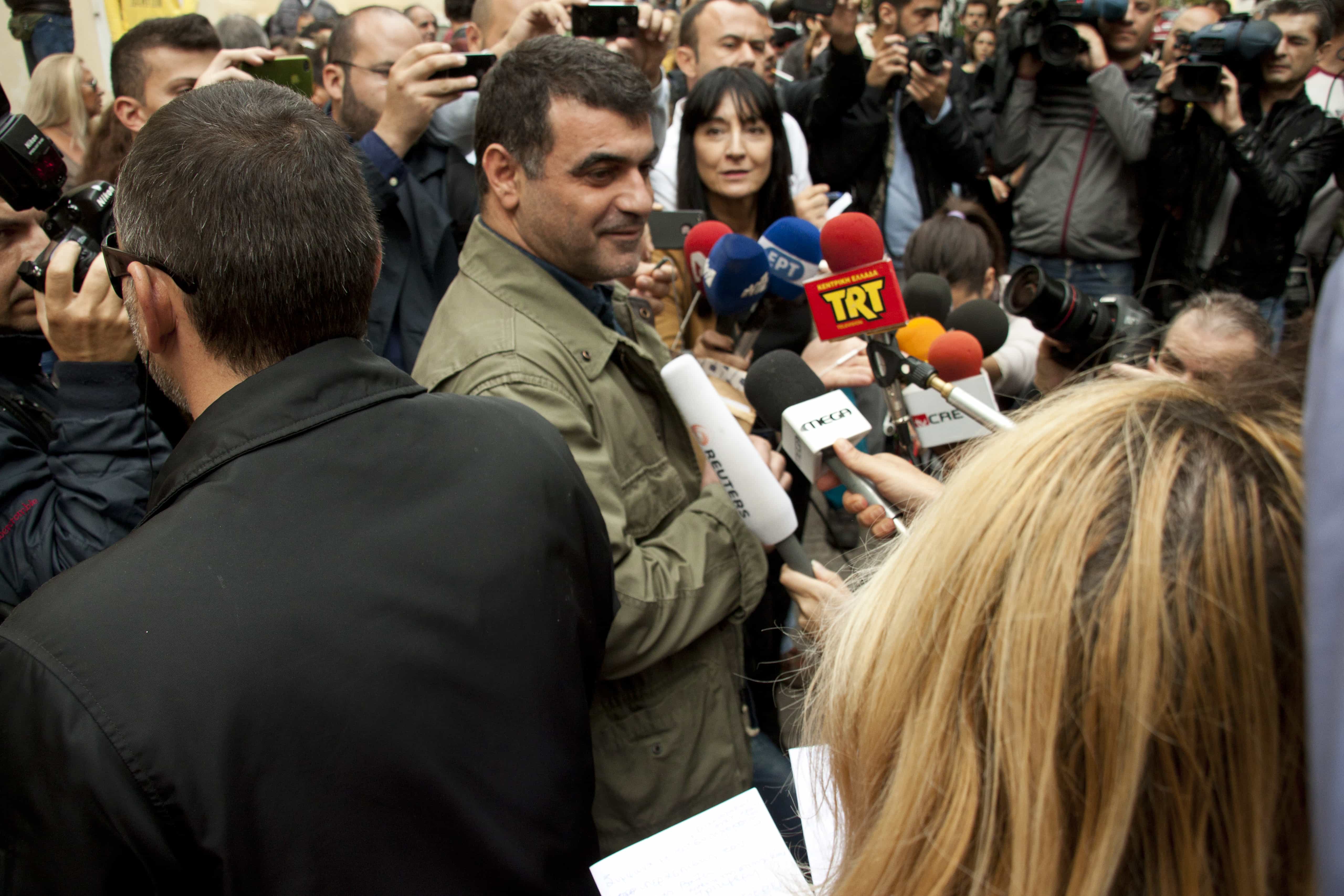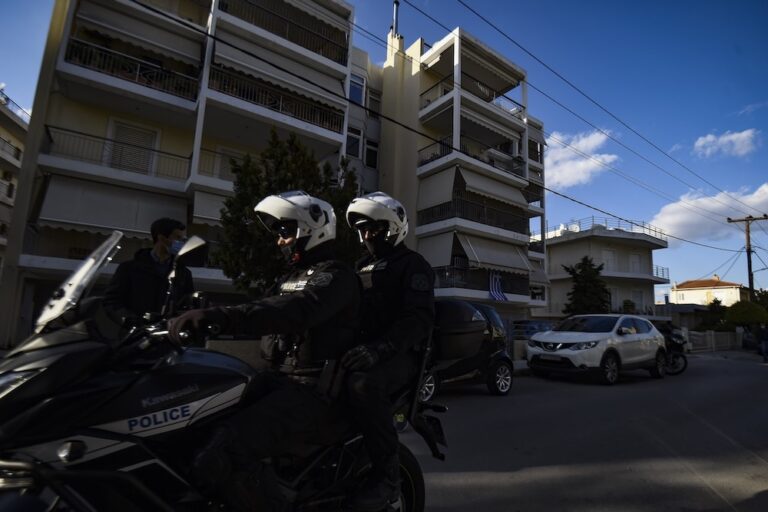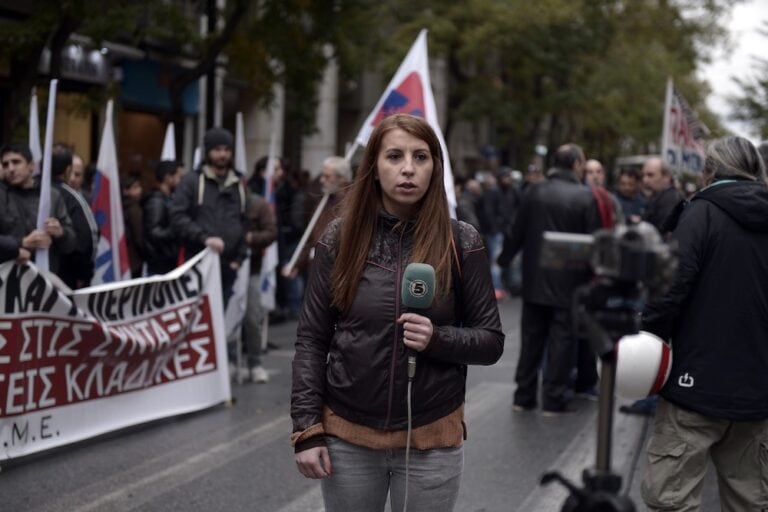Well-known investigative reporter Kostas Vaxevanis is facing trial over breach of privacy laws after he published a list of names of prominent Greek politicians and business leaders holding Swiss bank accounts.
UPDATE: Acquitted Greek journalist facing re-trial (Index on Censorship, 23 November 2012)
An investigative reporter who was arrested on Sunday evening after he published a list of names of prominent Greek business leaders and politicians holding Swiss bank accounts is now facing trial over breach of privacy laws, report ARTICLE 19, the International Press Institute (IPI), and other IFEX members.
Kostas Vaxevanis, a well-known investigative reporter and editor of the magazine Hot Doc, was detained 28 October 2012 and held for three hours before being released. He was ordered to appear in court the next day, but the hearing was deferred to 1 November. According to the journalist’s attorney, he could face at least one year in prison and a fine of €30,000 if found guilty of the misdemeanour charge, says IPI.
The arrest came a day after Vaxevanis published a list of over 2000 names of Greek residents who hold bank accounts at the HSBC bank in Geneva in a special edition of his Hot Doc magazine. The so-called “Lagarde list” – an electronic file given to the Greek government by then French finance minister Christine Lagarde, now head of the International Monetary Fund – has been in the hands of successive Greek finance ministers since 2010, but the government has failed to act on it. In the face of growing anger among Greeks over yet another round of austerity measures and the perceived failure by the government to crack down on tax evaders, Vaxevanis decided to publish the list himself, saying it was in the public interest.
According to one source, Greece may be losing as much as 20 billion euros to tax dodging.
ARTICLE 19 agreed Vaxevanis acted in the public interest by publishing the list.
“Against the backdrop of the financial crisis – it is absolutely relevant that this information be made public; the existence of the list and its contents should be considered a matter for public debate.”
The organization added that the government “ought to be responding to the information rather than punishing the person who brought it to public attention.”
In an act of solidarity – or a challenge to the authorities – the major Greek daily, Ta Nea, later reprinted the names, devoting 10 pages to the list. Neither publication specified the amount of the deposits or any other personal information. Both publications stressed there was no evidence linking anyone on the list to tax evasion.
Vaxevanis defended his actions further yesterday in an article to The Guardian newspaper.
“The law on personal data was invoked as a basis for indictment. In reality, though, there was no personal data involved – only the fact that certain individuals held an account in a certain bank. We did not even allege that these individuals were guilty, only called for an investigation.”
The case has set off a public outcry in the country and drawn international attention both for the speed of Vaxevanis’ arrest – in sharp contrast to the many years it has taken the government to pursue wealthy tax dodgers – and for the heavy-handed police response. Vaxevanis tweeted early Sunday morning that 15 officers had surrounded the home of a friend with whom he had been staying “like Greek storm troopers in German uniforms.”
IFEX member Reporters without Borders (RSF) expressed particular concern over the police action, calling the response, “disproportionate”.
“This excessive procedure encourages the blackout that the authorities apparently want to impose on coverage of this case, which – although sensitive – is undeniably a subject of public interest,” said the group.
The Committee to Protect Journalists (CPJ) also weighed in yesterday, calling the incident “an abominable assault on the public’s right to hold government to account.”



